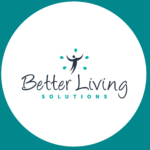It is our mission to offer solutions that promote emotional and physical wellness for all individuals as well as sustained recovery for people suffering with eating disorders or disordered eating. We specialize in treating clients of all ages and genders with Eating Disorders and co-existing conditions including depression, anxiety, and trauma. Individuals must treat chemical dependency issues prior to entering program.
We believe in fostering trusting relationships in order to identify and resolve the underlying issues and unhealthy core beliefs. By implementing proactive recovery strategies through a variety of treatment methods, programs, and resources, we support our clients in actively living a fulfilling life.
Levels of Care Offered at BLS Recovery Center
- Outpatient Treatment: 1-3 x per week
- Session offered Monday thru Friday 8:30am-7:30 pm
- Individual Counseling
- Nutrition Counseling
- Family Therapy (Recommended)
- Family & Friends Education Workshops (Recommended)
- Session offered Monday thru Friday 8:30am-7:30 pm
- Intensive Outpatient Programs: 3 or 5 days per week; 3-5 hours per day
- Individual Counseling
- Family Therapy (Recommended for adults; required for adolescents)
- Nutrition Counseling
- Group Therapy Sessions
- 1-2 Therapeutic Meal Support Sessions per day
- Family & Friends Education Workshops
- Partial Hospitalization Programs – 5 days per week; 6-10 hours per day
- Individual Counseling
- Family Therapy (Recommended for adults; required for adolescents)
- Nutrition Counseling
- Group Therapy Sessions
- 3-4 Therapeutic Meal Support Sessions per day
- Family & Friends Education Workshops
What Makes Treatment at BLS Unique? It’s R.E.A.L.
- Recognize the negative thought patterns and challenges you are facing
- Engage in your day to day life and pursue recovery
- Acquire practical tools during BLS sessions and implement them at home, work, or school
- Live Your Life – We provide life coaching and mentoring beyond the Eating Disorder. We will help you connect with your community and build supports outside of treatment
Interventions Utilized In Our Programs
- Cognitive Behavioral Therapy
- Dialectical Behavioral Therapy
- Acceptance Commitment Therapy
- Family-Based Therapy for children and adolescents (click here for more information about Family-Based Therapy)
- Art Therapy
- Music Therapy
- Experiential Therapy
- Narrative Therapy
- EMDR


What Are Eating Disorders?
Eating disorders are serious, potentially life-threatening psychological and physical illnesses characterized by disturbances in one’s diet. This could be food restriction, compulsive overeating, binging (eating an abnormally large amount of food in a short period of time), purging (attempting to compensate for food consumed through self- induced vomiting, laxative use, or overexercise), or a combination of any or all of these symptoms. The DSM 5 (which is used to diagnose mental illnesses) lists seven major types of eating disorders. Only a licensed professional is qualified to issue a diagnosis but here are some warning signs/symptoms to look out for: https://www.nationaleatingdisorders.org/warning-signs-and-symptoms
Have Questions?
For questions regarding intake, insurance and our programs, please contact our Program Coordinator, Kailee, at 850-765-6769 or kailee_neves@blscounseling.net.
Example IOP/PHP Group Schedule
What Are The Different Types of Eating Disorders?
Anorexia nervosa: persistent restriction of food intake leading to significant weight loss (lower than what would be minimally expected according to the patient’s growth curve), disturbed perception of one’s body- patients often see themselves as very fat, despite being underweight, and intense fear of gaining weight or becoming fat.
Bulimia nervosa: recurrent binge eating followed by purging through compensatory behaviors like vomiting, overexercise, diuretics, laxatives, or fasting.
Binge Eating Disorder: consistent episodes of binge eating large quantities of food within a 2 hour period, not followed by purging.
Avoidant- Restrictive Food Intake Disorder: persistent failure to meet minimum nutritional needs resulting in weight loss, nutritional deficiencies, dependence on oral nutritional supplements, or disturbance in social functioning, best described as a very picky eater
Orthorexia: although not classified as a diagnosis in the DSM-5, many people struggle with its symptoms. Those suffering from orthorexia nervosa have an “unhealthy obsession with healthy eating. They can be consumed with rigid eating patterns, feeling superior to others based on their food intake.
Other Specified Feeding or Eating Disorder: This is a catch-all term for eating disorders that may not meet all of the criteria for another diagnosis, most common.
Eating Disorder Facts and Figures
- In the United States, 20 million women and 10 million men suffer from a clinically significant eating disorder at some time in their life, including anorexia nervosa, bulimia nervosa, binge eating disorder, or EDNOS (Wade, Keski-Rahkonen, & Hudson, 2011). (EDNOS is now recognized as OSFED, other specified feeding or eating disorder, per the DSM-5.)
- For various reasons, many cases are likely not to be reported. In addition, many individuals struggle with body dissatisfaction and sub-clinical disordered eating attitudes and behaviors, and the best-known contributor to the development of anorexia nervosa and bulimia nervosa is body dissatisfaction (Stice, 2002). By age 6, girls especially start to express concerns about their own weight or shape. 40-60% of elementary school girls (ages 6-12) are concerned about their weight or about becoming too fat. This concern endures through life (Smolak, 2011).
- A review of nearly fifty years of research confirms that anorexia nervosa has the highest mortality rate of any psychiatric disorder (Arcelus, Mitchell, Wales, & Nielsen, 2011).
- Research dollars spent on Alzheimer’s Disease averaged $88 per affected individual in 2011. For Schizophrenia the amount was $81. For Autism $44. For eating disorders the average amount of research dollars per affected individual was just $0.93. (National Institutes of Health, 2011)
**these statistics are pulled from http://www.nationaleatingdisorders.org/get-facts-eating-disorders
Resources/Referrals
After the assessment or at any time during treatment, should it be determined that our services are not appropriate for you/your child’s medical or mental health needs, we will assist with transferring to an appropriate facility (i.e. residential facility, psychiatric facility, or acute hospital).
A list of ED providers and support services associated with the National Eating Disorder Alliance can be found at:
https://www.nationaleatingdisorders.org

